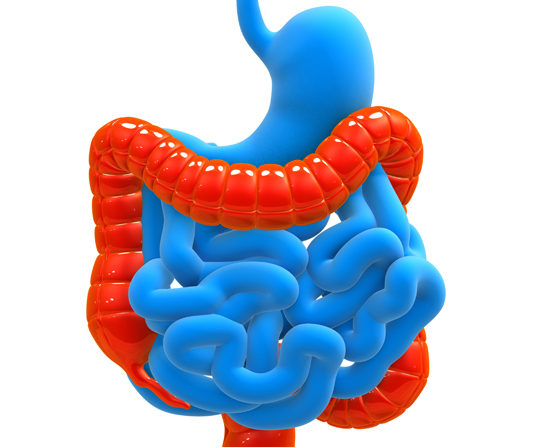The Dreaded Double “C”
April 28, 2022 Return

Alan had always considered himself to be healthy. Well, he wasn’t the definition of “fit” but he took pride in the fact that he barely called in sick to work. To him, that was “healthy” enough. So, when he began noticing mucous – and sometimes, blood – in his stools, he brushed it off as a symptom of haemorrhoids. Later, alternating bouts of constipation and diarrhoea set in. Once again, Alan didn’t think they were important enough to warrant a visit to the doctor. When he finally gave in and got himself checked 5 years later, the test results shocked him to the core – he had stage 3 colorectal cancer.
How common is “common”?

“Colorectal cancer is more common than most think,” says Consultant General and Colorectal Surgeon Dr Colin Ng. “It’s the most common cancer among men whereas for women, it’s in third place. More than 90% of cases in Malaysia strike those above the age of 40, with the risk increasing drastically for people above 50.” But Dr Colin is quick to add, “As prevalent as it is, it is highly treatable if detected early. A person’s risk can also be significantly lowered if risk factors are properly managed. Therefore, it’s crucial for Malaysians to be well aware of colorectal cancer.”
Introducing the Double “C”
“The colon is a tube connecting the small intestine to the rectum. It aids the body in reabsorbing nutrients and fluids from waste. Meanwhile, the rectum which is the chamber linking the colon to the anus acts as a temporary storehouse for waste prior to defaecation. Colorectal cancer refers to cancer occurring in either of these organs,” explains Dr Colin.
Delving further, he says, “The colon and rectum’s inner lining can be breeding ground for polyps (small tumours). Polyps are mostly benign, meaning they are harmless. However, some may turn cancerous (malignant) later on. An example is adenomatous polyps, a type of polyp frequently found in the colorectal area. Other common types include hyperplastic and inflammatory polyps. Polyps aren’t normally cancerous but the larger they are, the higher the possibility of them becoming cancerous. Polyps with a size of less than 1cm have a slightly more than 1% risk of turning cancerous but the risk skyrockets to 40% should their size increase to 2cm or more.”
“What are my chances?”
Asked about the possible causes of colorectal cancer, Dr Colin says, “It’s still unclear what exactly causes colon cancer. However, there are factors which can up someone’s risk of colorectal cancer – or polyps for that matter.”
Runs in the family – sometimes
He says, “Research has found a link between inherited gene mutations and a small portion of colorectal cancer cases. While inherited gene mutations don’t guarantee cancer, they can significantly heighten someone’s cancer risk.”
Common types of inherited colorectal cancer syndromes include:
Familial adenomatous polyposis (FAP)
It is a disorder whereby hundreds – in some cases, thousands – of polyps form in the colon and rectum lining. This occurs when the APC gene (a type of tumour suppressor gene) undergoes mutation leading to abnormal cell growth. If left untreated, individuals with FAP have a high chance of developing colorectal cancer before they turn 40.
Hereditary nonpolyposis colorectal cancer (HNPCC)
Also known as Lynch syndrome, HNPCC results from the mutation of genes which typically aid our cells’ repair of faulty DNA. When these genes mutate, DNA errors are no longer corrected accordingly. These errors may also affect genes which regulate cell growth, subsequently causing cancer. Individuals with HNPCC are likely to get colorectal cancer before the age of 50.
If you are worried that you are at risk of an inherited type of colorectal cancer, Dr Colin advises, “Consult a colorectal surgeon. There are genetic tests you can take to confirm your suspicions.”
You’re what you eat
“A diet rich in red meat and lacking in fiber has been associated with a higher colorectal cancer risk. Ensure your diet boasts various fruits, whole grains and vegetables so you can obtain as much antioxidants and fiber as possible,” he stresses. “But it isn’t just about your food but your way of cooking it. Frying or grilling meats is a no-no as extreme temperatures can turn meats carcinogenic.”
Excessive drinking is another factor. “Higher colorectal cancer risk is linked to heavy drinking with the link generally stronger in men. So, drink alcohol moderately; 2 units for men and 1 for women daily.”
Let’s get physical!
If you have been leading an inactive lifestyle, now would be a good time to get off the couch and hit the gym. “Sedentary lifestyle increases one’s risk significantly. So, do incorporate more physical activity in your daily routine. Try exercising for at least 30 minutes, 5 days a week.” Some studies have shown physical activity to have an effect on immune and inflammatory factors, which may in turn affect colorectal cancer risk.
Underlying diseases
“Inflammatory bowel disorders like Crohn’s disease and ulcerative colitis can up your chances of colorectal cancer. The same goes for diabetes. Colorectal cancer has been found to occur more frequently in people with type 2 diabetes.”
Ditch that cigarette
Cigarettes are called cancer sticks for a reason. Colorectal cancer prevalence is significantly higher in former and current smokers compared to life-long non-smokers. So, it’s not too late to kick the habit because studies have noted a decline in cancer risk among former smokers.
Screen, screen, screen!
“While having the aforementioned risk factors doesn’t mean you’ll definitely develop colorectal cancer, they mustn’t be overlooked. You need to manage them promptly and accordingly – undergoing screenings being one of the ways,” Dr Colin cautions. “We generally advise people to undergo colorectal cancer screening when they hit 50 years old. However, if your risk is very high (eg. cancer runs in your family), your doctor will recommend earlier or more regular screenings.”
If you like this article, do subscribe here.


